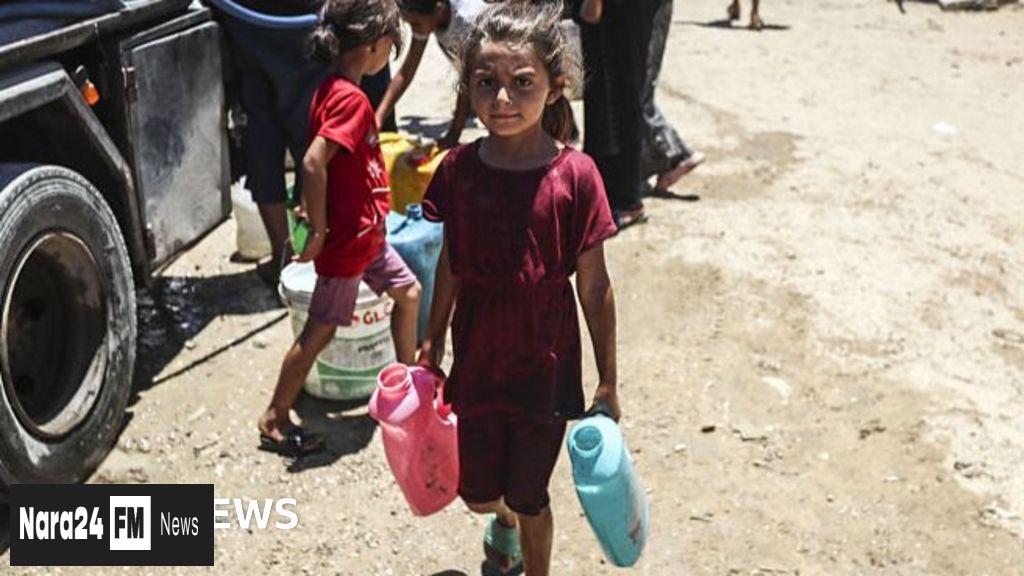In This Article
- Israel's Proposed Gaza Relocation Plan
- Criticism and Condemnation of the Proposed Plan
- US Involvement in Gaza's Future
- Alternative Plans for Gaza's Reconstruction
- Historical Context: The Nakba and Palestinian Displacement
- Current State of Gaza and International Concerns
Key Takeaways
- Israel's Defense Minister has proposed relocating Gaza's population into a 'humanitarian city' in Rafah.
- The proposed plan involves initially housing around 600,000 Palestinians, with potential to accommodate the entire 2.1 million population.
- The plan has been criticized as a potential crime against humanity by Israeli human rights lawyers and the United Nations.
- Israeli Prime Minister Benjamin Netanyahu discussed with US President Donald Trump the possibility of the US permanently resettling Gaza's population elsewhere.
- Palestinians fear a repeat of the Nakba, the displacement that occurred following the creation of the State of Israel in 1948.
Israel's Defense Minister, Israel Katz, has reportedly instructed the military to prepare a plan to relocate the entire population of Gaza into a camp in the city of Rafah, according to Israeli media. The proposed plan involves establishing a "humanitarian city" to initially house around 600,000 Palestinians, with the potential to accommodate the entire 2.1 million population in the future. The plan has been criticized as a potential crime against humanity by Israeli human rights lawyers and the United Nations.
Katz said the aim was to bring the Palestinians into the camp for security screening to ensure they were not Hamas operatives, and that they would not be permitted to leave. If conditions allowed, he suggested that construction could begin during a 60-day ceasefire that Israel and Hamas are attempting to negotiate. The proposal has been met with condemnation, with one Israeli lawyer describing it as an "operational plan for a crime against humanity."
The UN has previously warned that the deportation or forced transfer of an occupied territory's civilian population is strictly prohibited under international humanitarian law and is "tantamount to ethnic cleansing." There has been no immediate comment from the Palestinian Authority or Hamas regarding the proposal. During a meeting at the White House, Israeli Prime Minister Benjamin Netanyahu discussed US President Donald Trump's proposal that the US take over post-war Gaza and permanently resettle its population elsewhere.
Netanyahu said, "I think President Trump has a brilliant vision. It's called free choice. If people want to stay, they can stay, but if they want to leave, they should be able to leave..." He added that they are working closely with the United States to find countries willing to resettle the Palestinians. Trump expressed optimism, stating, "We've had great cooperation from... surrounding countries, great cooperation from every single one of them. So, something good will happen."
In March, Arab states endorsed an alternative to Trump's plan for Gaza's reconstruction that would allow the Palestinians living there to stay in place. They also rejected any form of displacement of the Palestinian people, describing such an idea as a violation of international law and a crime against humanity. The Palestinian Authority and Hamas also endorsed the Egyptian plan, but the US and Israel claimed it failed to address the realities in Gaza.
Palestinians fear a repeat of the Nakba, the Arabic word for "catastrophe," when hundreds of thousands fled or were driven from their homes before and during the war that followed the creation of the State of Israel in 1948. Many of those refugees ended up in Gaza, where they and their descendants make up three-quarters of the population. Another 900,000 registered refugees live in the occupied West Bank, while 3.4 million others live in Jordan, Syria, and Lebanon, according to the UN.
The Israeli military launched a campaign to destroy Hamas in response to an unprecedented cross-border attack on October 7, 2023, resulting in approximately 1,200 deaths and 251 hostages. Since then, more than 57,500 people have been killed in Gaza, according to the territory's Hamas-run health ministry. Most of Gaza's population has been displaced multiple times, with over 90% of homes estimated to be damaged or destroyed; the healthcare, water, sanitation, and hygiene systems have collapsed; and there are shortages of food, fuel, medicine, and shelter.
As the international community closely monitors the situation, questions remain about the legality and ethics of the proposed plan to relocate the Gaza population. The potential for a repeat of the Nakba and the impact on the Palestinians' human rights remain a significant concern.








Comments (0)
Leave a Comment
Be the first to comment on this article!